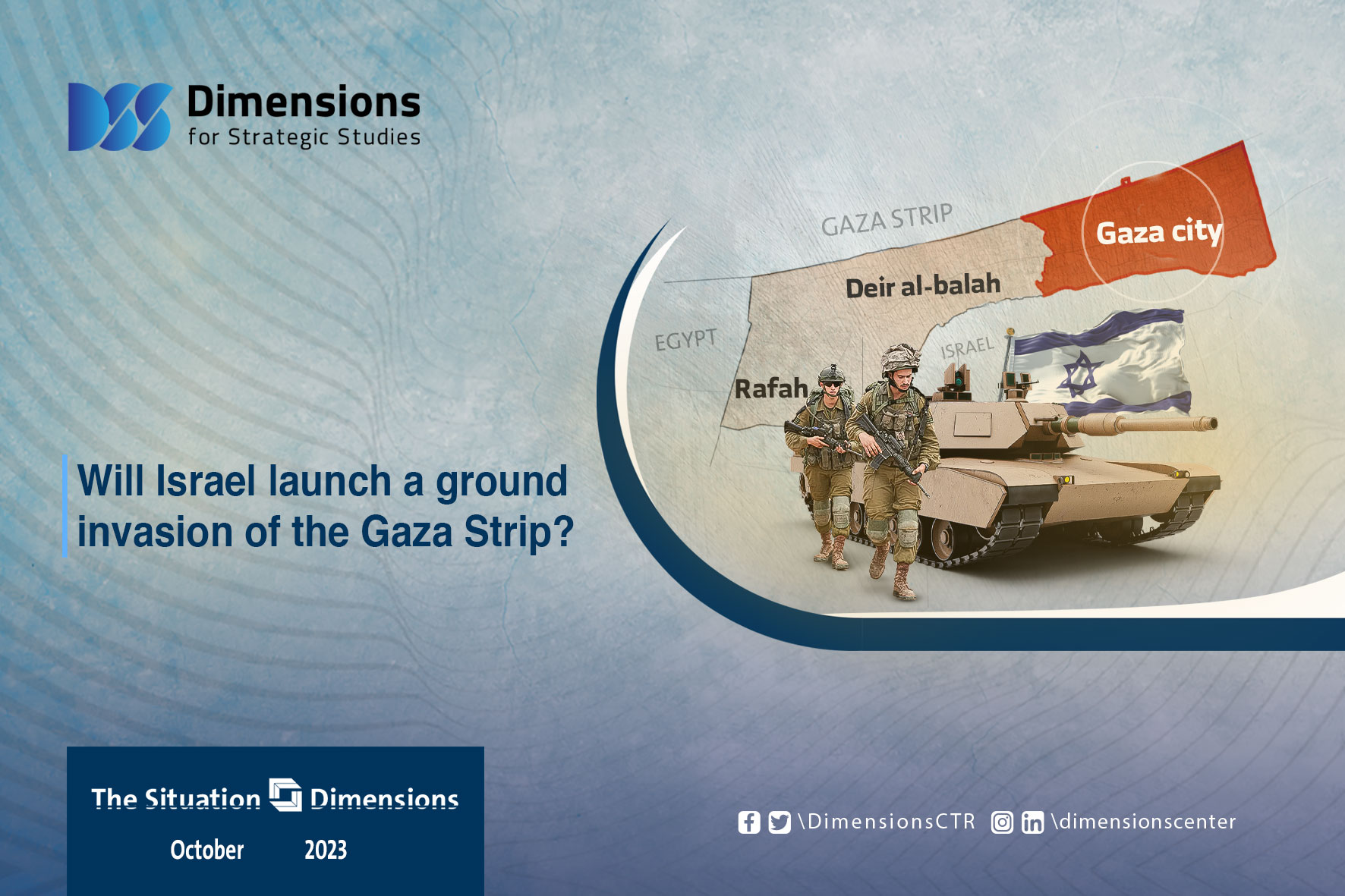
Will Israel launch a ground invasion of the Gaza Strip?
2023-10-162162 view
As the Al-Qassam Brigades initiated " Operation Al-Aqsa Flood" and scored unprecedented military successes, the Israeli leadership, with U.S. backing, started gearing up for a retaliatory mission. Their main objective was to regain standing and credibility both domestically and on regional and international fronts. This mission wasn't just about Gaza; as described by Israeli Prime Minister Benjamin Netanyahu, it was about reshaping the dynamics of the Middle East.
The military operation is a major game-changer in Israeli domestic politics. How it pans out could make or break Netanyahu's political career. He's banking on a standout performance to convince Israeli voters that he's still their go-to leader, especially in light of recent events.
Netanyahu isn't mincing his words. He's got big goals in mind, like wiping out Hamas completely. Meanwhile, Israel's sounding the alarm bells, telling folks in the northern Gaza Strip to pack up and head south. From the looks of it, Israel's aiming to clear out northern Gaza for good, shuffling half its people to the southern strip and sending the rest towards Rafah on the Egyptian side.
It seems like the Israeli military might be borrowing a page from Bashar al-Assad's playbook in Syria and his allies. They might adopt the 'scorched earth' tactic using air power, coupled with a siege strategy. The endgame? Forcing civilians and fighters to pull out if there are safe exit routes, or pushing them to throw in the towel
Of course, at the end of the day, the Israeli army would need to make a ground incursion. To that end, they've rallied around 360,000 reserve troops so far. That's the largest call-up since 1973, a whopping six times more than what was mustered in the 2006 war!
While Israel clearly has the numerical and technical upper hand compared to the Palestinian factions, it's not all smooth sailing for them. They're grappling with a bunch of challenges that are either slowing them down or limiting the scope of the anticipated ground operation. The biggest ones include:
- Defenders generally have the military advantage. In the Palestinian context, historically, Palestinian factions have had much more experience in defensive operations than offensive ones. But this edge is contingent on the operation unfolding in line with Israel's previous patterns, not the kind seen in Syria, characterized by sheer brutality that exhausts defenders even before the battle begins.
- For the first time in the Palestinian-Israeli conflict history, defenders in this battle hold a significant number of hostages. While Israel's approach of indiscriminate shelling suggests a decision to entirely disregard the hostages, their potential loss could have major political repercussions in Israel. So, it's likely Israel will leave some room for the ongoing diplomatic efforts aimed at securing the release of as many hostages as possible.
- In this battle, the defenders are riding a significant morale boost, buoyed by their early achievements. However, this high spirit could start to wane if the fighters and their supporting communities realize that no other fronts will be opened in their support, and that they've played all their military 'wild cards'. This is especially true when paired with a sharp uptick in casualties and losses.
- There's the regional and international pressure. Mostly, it's driven by neighboring countries' concerns about the fallout of the conflict on their turf, whether that means a flood of refugees or internal tensions. At the same time, most regional and Western nations wouldn't mind seeing Hamas weakened and its grip on the Gaza Strip loosened. By and large, these countries are looking to leverage the current situation to shift the political and military landscape in Gaza without a demographic shake-up.
Based on this, it's not unlikely that Israel might hold back from a full ground invasion, but instead opt for a partial one. This could be coupled with an expansion of the scorched earth policy and ramped-up blockade measures. Such strategies aim to wear down the fighters and their supporting base, pushing their on-the-ground rivals to instigate changes in the status quo that has been in place in the Strip since 2007.
Finally, there remains another scenario where a retreat from the ground invasion, either partially or fully, is considered, especially if it becomes evident that the invasion won't yield the desired results or that the risks would be exceedingly high. In such a scenario, Hamas would emerge as the biggest victor. This is because they would solidify their leadership in the Palestinian landscape. Additionally, halting the conflict would alleviate the existing pressure on Hamas's allies in the region, especially Hezbollah. Contrary to its previous stance, Hezbollah has opted to support the Lebanese army in managing the borders, even though "confronting Israel" is the existential justification for what the party refers to as the "weapon of resistance.





